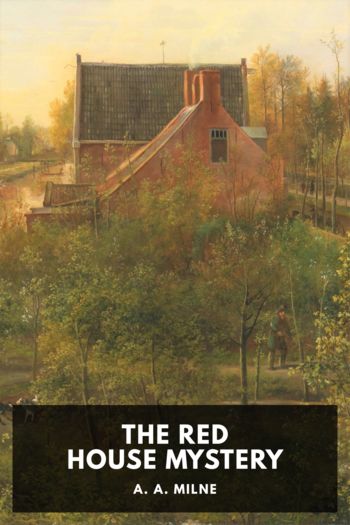Short Fiction - Edgar Allan Poe (book reader for pc .TXT) 📗

- Author: Edgar Allan Poe
Book online «Short Fiction - Edgar Allan Poe (book reader for pc .TXT) 📗». Author Edgar Allan Poe
To enter the little café in the cul-de-sac Le Febre was, at the period of our tale, to enter the sanctum of a man of genius. Bon-Bon was a man of genius. There was not a sous-cusinier in Rouen, who could not have told you that Bon-Bon was a man of genius. His very cat knew it, and forebore to whisk her tail in the presence of the man of genius. His large water-dog was acquainted with the fact, and upon the approach of his master, betrayed his sense of inferiority by a sanctity of deportment, a debasement of the ears, and a dropping of the lower jaw not altogether unworthy of a dog. It is, however, true that much of this habitual respect might have been attributed to the personal appearance of the metaphysician. A distinguished exterior will, I am constrained to say, have its way even with a beast; and I am willing to allow much in the outward man of the restaurateur calculated to impress the imagination of the quadruped. There is a peculiar majesty about the atmosphere of the little great—if I may be permitted so equivocal an expression—which mere physical bulk alone will be found at all times inefficient in creating. If, however, Bon-Bon was barely three feet in height, and if his head was diminutively small, still it was impossible to behold the rotundity of his stomach without a sense of magnificence nearly bordering upon the sublime. In its size both dogs and men must have seen a type of his acquirements—in its immensity a fitting habitation for his immortal soul.
I might here—if it so pleased me—dilate upon the matter of habiliment, and other mere circumstances of the external metaphysician. I might hint that the hair of our hero was worn short, combed smoothly over his forehead, and surmounted by a conical-shaped white flannel cap and tassels—that his pea-green jerkin was not after the fashion of those worn by the common class of restaurateurs at that day—that the sleeves were something fuller than the reigning costume permitted—that the cuffs were turned up, not as usual in that barbarous period, with cloth of the same quality and color as the garment, but faced in a more fanciful manner with the particolored velvet of Genoa—that his slippers were of a bright purple, curiously filigreed, and might have been manufactured in Japan, but for the exquisite pointing of the toes, and the brilliant tints of the binding and embroidery—that his breeches were of the yellow satin-like material called aimable—that his sky-blue cloak, resembling in form a dressing-wrapper, and richly bestudded all over with crimson devices, floated cavalierly upon his shoulders like a mist of the morning—and that his tout ensemble gave rise to the remarkable words of Benevenuta, the Improvisatrice of Florence, “that it was difficult to say whether Pierre Bon-Bon was indeed a bird of Paradise, or rather a very Paradise of perfection.” I might, I say, expatiate upon all these points if I pleased—but I forbear, merely personal details may be left to historical novelists—they are beneath the moral dignity of matter-of-fact.
I have said that “to enter the café in the cul-de-sac Le Febre was to enter the sanctum of a man of genius”—but then it was only the man of genius who could duly estimate the merits of the sanctum. A sign, consisting of a vast folio, swung before the entrance. On one side of the volume was painted a bottle; on the reverse a pâté. On the back were visible in large letters Œuvres de Bon-Bon. Thus was delicately shadowed forth the twofold occupation of the proprietor.
Upon stepping over the threshold, the whole interior of the building presented itself to view. A long, low-pitched room, of antique construction, was indeed all the accommodation afforded by the café. In a corner of the apartment stood the bed of the metaphysician. An army of curtains, together with a canopy à la Grèque, gave it an air at once classic and comfortable. In the corner diagonary opposite, appeared, in direct family communion, the properties of the kitchen and the bibliothèque. A dish of polemics stood peacefully upon the dresser. Here lay an ovenful of the latest ethics—there a kettle of dudecimo melanges. Volumes of German morality were hand and glove with the gridiron—a toasting-fork might be discovered by the side of Eusebius—Plato reclined at his ease in the frying-pan—and contemporary manuscripts were filed away upon the spit.
In other respects the Café de Bon-Bon might be said to differ little from the usual restaurants of the period. A fireplace yawned opposite the door. On the right of the fireplace an open cupboard displayed a formidable array of labelled bottles.
It was here, about twelve o’clock one night during the severe winter of ⸻, that Pierre Bon-Bon, after having





Comments (0)